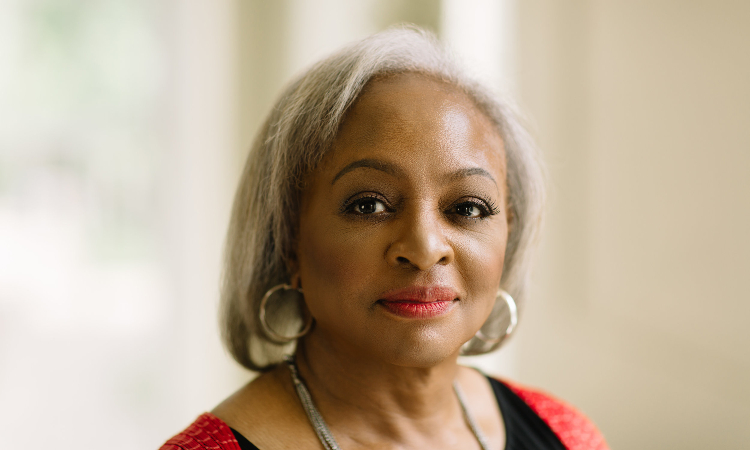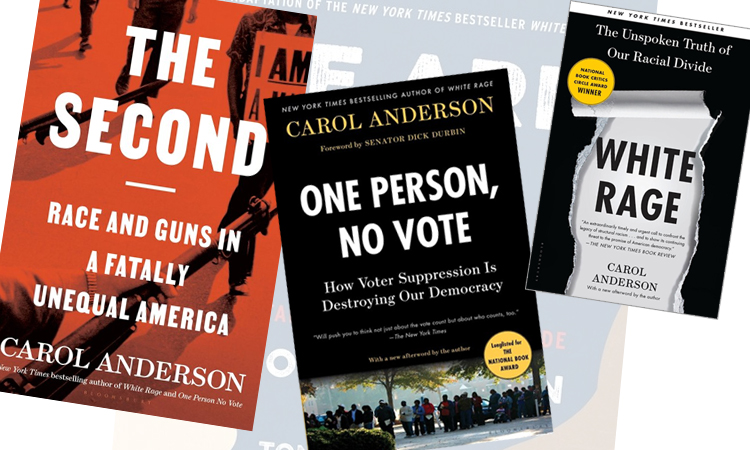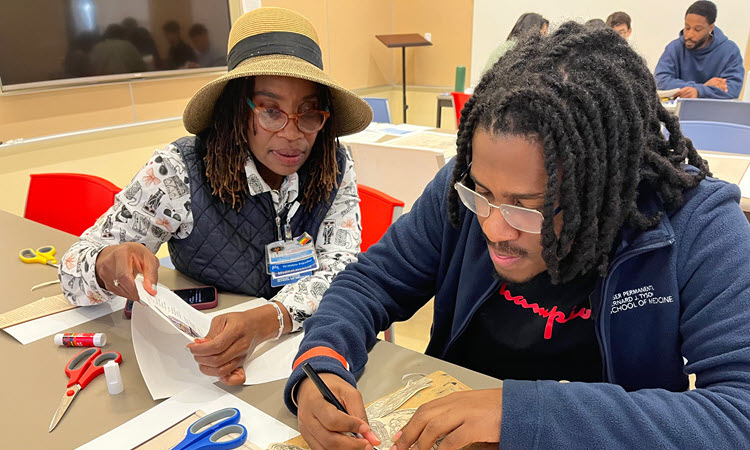From police brutality to voting rights, from protests in the streets to controversy about critical race theory in the classroom, award-winning author and historian Carol Anderson, PhD, has been at the forefront of the ongoing national dialogue at the intersection of race and politics.
Anderson, the Charles Howard Candler Professor of African American Studies at Emory University, has written extensively about the ways racism affects how laws are enacted and enforced in the U.S. Among her acclaimed books are White Rage: The Unspoken Truth of Our Nation's Divide; One Person, No Vote: How Voter Suppression Is Destroying Our Democracy; and the 2021 bestseller, The Second: Race and Guns in a Fatally Unequal America. As part of the KPSOM Speaker Series, Anderson recently gave a virtual talk titled, “A Conversation on Racism, Voting Rights, and the Second Amendment.” She also granted a brief interview to discuss her research on the racial origins of gun rights and their present-day implications for public health. The following is edited for clarity and length.
How did you decide to study the Second Amendment from the standpoint of race?
It started with the killing of Philando Castile [in 2016]. He was a Black man who was pulled over in Minnesota by the police. The police officer had asked him for his ID and, following NRA guidelines, Castile alerted the officer that he had a license to carry a weapon with him. He was reaching for his ID as the officer had asked, and the police officer then began shooting. Now, he's not brandishing the weapon, he's not threatening the officer, he's merely alerting him that he has a license to carry a weapon. And then the NRA went silent. So, you've got a licensed gun owner, who is gunned down for no other reason than he has a gun, and the NRA goes silent… And pundits began asking: "Don't African Americans have Second Amendment rights?" Well, as a rights scholar, that's what I study. I went, "Oh, this is one I haven't explored." And it took me back into the 17th century and that's where, seeing the evidence, my thesis began to unfold. Because what I saw was this palpable fear of Black people. The slave codes and the laws governing free Blacks were about keeping them disarmed, that they couldn't have access to weapons. This ongoing fear that Black folks would rise up, that there would be a revolution, that there would be retribution for the ways that African Americans had been treated in the U.S. That if they had access to weapons, they would slaughter whites. And so, embedded in our Bill of Rights, basically, is the right to contain and control Black people's rights, to deny those rights via the militia.
What part does the Second Amendment play now in the movement to end police violence against African Americans?
I think that part of what we're seeing is that a narrative has really gripped this society, where the Second Amendment is the holy grail of citizenship. And the Second Amendment is basically a white-only element of the constitution. Reuters did a harrowing analysis of the threats coming in to election workers and poll workers during the 2020 election. And repeatedly, folks were saying, “I'm going to use my Second Amendment rights to get our country back. This election was stolen. I'm using my 2A rights.” And the anger is that Black folks had the audacity to come out and vote and they had the audacity to not vote in mass for a white supremacist.




